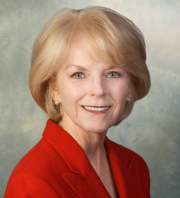|
|
|
Menopause
Is Big Business
 by Linda Ojeda, Ph.D., Sausalito, CA
by Linda Ojeda, Ph.D., Sausalito, CA
In the West, historically, the menopausal woman was regarded with pity
and indifference. Because she complained of symptoms that were as yet
unexplained, she was labeled a neurotic hypochondriac, then sedated and
left to suffer in silence. I am sure no one regrets leaving behind those
days of disbelief and intolerance. But what replaced the ignorance--namely,
the medical model of midlife--may be equally destructive.
Women who are fifty-something are no longer ignored; they are actively
courted. They are presently a prime target of the medical industry, drug
companies, and other interests that can benefit from an aging population.
And the market is growing: Fifty million baby boomers are going through
menopause, entering at a rate of between two thousand and four thousand
per day. By the year 2015, nearly one-half of the female population will
be menopausal. Talk about global warming!
Industry-financed medical researchers inundate us with information about
the benefits of treating all menopausal signs and symptoms--severe or
insignificant-- with hormones. The assumption that menopause is associated
with chronic disease further encourages widespread use of prescription
drugs. While earlier hormonal therapies were marketed only to physicians,
major drug companies now directly target female consumers in grocery-store
magazines. Before they experience their first hint of oncoming menopause,
women are already primed to run to the doctor for pills.
Menopause is now a big business, and we women consumers need to be alert
to what we hear and read. The fact that there is a strong bias toward
medicalizing menopause is obvious. Now that hormone replacement therapy
(HRT) no longer commands the primary focus since its reputation has been
tarnished, an abundance of prescription drugs are primed to fill the void
and sell us treatments for osteoporosis, vaginal dryness, hot flashes,
and heart disease. Our buying power is huge and we are going to be courted
and cajoled into taking drugs that we may not need.
Before you decide on a new medication, please do some homework. Check
with a few health professionals who are not quick to medicate, check out
the Internet, read the latest in research, talk to your friends who may
be knowledgeable, and trust your own instincts about what is appropriate
for your body. Just because a product is advertised on TV and just because
thousands of women are taking it, doesn't mean it is the best drug for
you. Also, find out if a natural, less potentially harmful remedy exists
for your symptom. Often it does.
The thought of menopause should not and need not produce anxiety. A study
of other societies indicates that the stereotype of the distraught woman
is not universal, that our negative reactions to common physiological
processes, such as menstruation and menopause, are culturally engendered.
In countries where age is venerated and elders enjoy respect for their
experience and wisdom, older women seem to manifest fewer physical and
psychological symptoms. For example, South African, Asian, and Arabic
women, who, it is said, welcome the end of the childbearing years, are
reported to have positive attitudes about the change of life. Where there
are different predefined concepts, aging seems to be more natural, less
confusing, and not overlaid with negative images.
Mayan women in Mexico have been studied by researchers because they do
not complain of the characteristic symptoms of menopause and do not suffer
from osteoporosis and bone fractures. Endocrinologically, they are no
different from women in the United States. In fact, estrogen levels in
Mayan postmenopausal women were at or below the values expected for U.S.
women. Something that is significantly different is their attitude. Mayan
women welcome the transition, as they will be relieved of many household
chores and regarded as respected elders.
Menopause, like menarche, is natural. We experience hormonal changes at
menopause, just as we did in our adolescence. Any lifetime change may
be accompanied by uneasiness and disequilibrium; it is normal and it will
pass. How smoothly a woman adapts to any transition depends largely on
her overall health- that of her body, her mind, and her spirit.
Excerpted with permission from Menopause without Medicine, 5th edition,
by Linda Ojeda, Ph.D., (c) 2003, courtesy of Hunter House Publishers (800)
266-6692 www.hunterhouse.com
LINDA OJEDA, Ph.D., noted nutritionist and author, has been speaking
and writing about women's health for nearly 30 years. Her nutritional
guidelines have helped thousands of women make sensible decisions about
menstruation, perimenopause, menopause, nutrition and heart health. Linda
is also the author of Her Healthy Heart and Safe Dieting for Teens, and
coauthor of The Natural Estrogen Diet and Recipe Book.
|

